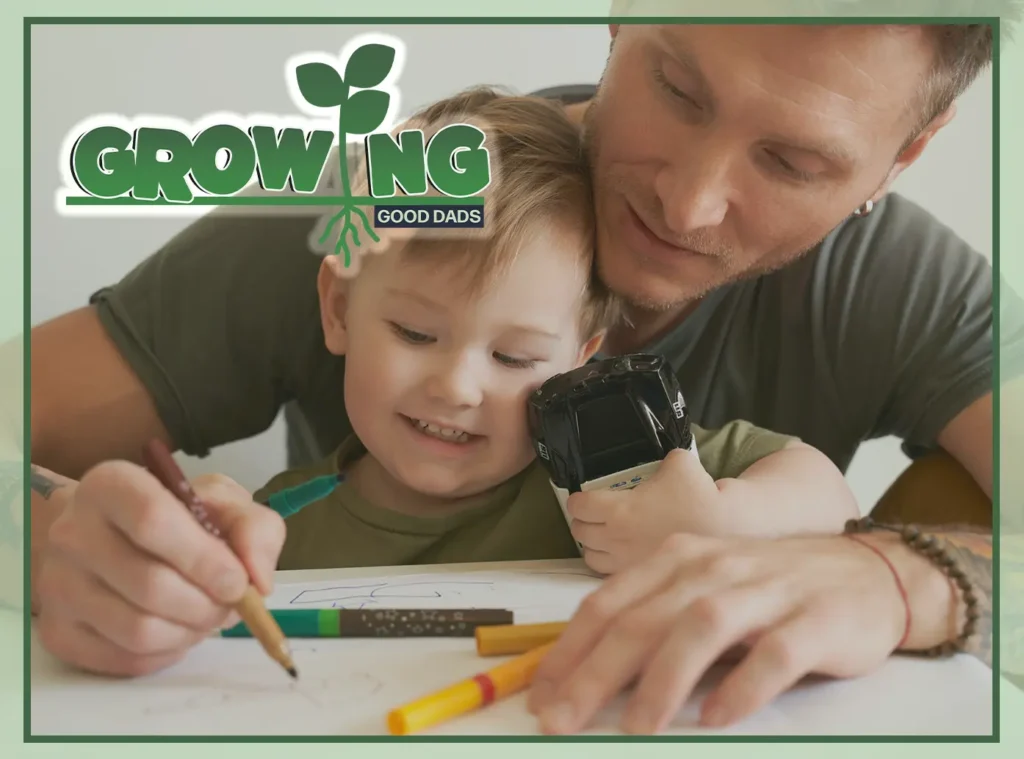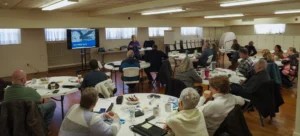Suddenly the sound of a bell, horn or whistle breaks the silence. Almost immediately another set of sounds can be heard. Those whoops, sighs and moans are voices of school children, teachers and parents heralding the end of the school year. Summer vacation has arrived!
Summer is a particularly important time for dads. Summer offers opportunities for family togetherness and bonding, but it also makes time for children to lose focus and lose learned information. A critical parenting task during summer is providing structure and new learning opportunities for your children.
Be Weary of the Summer Slide
Take this example. Suppose I ask you to jump up on a bicycle and start riding. For many of us, our initial efforts would fail (and probably look comical). That’s because we are out of the habit of riding a bicycle! After some practice, many of us would successfully regain the skill, but not everyone.
Learning in children is like that. During summer vacation, it’s not uncommon for children to forget a significant amount of the previous year’s learning. According to data from NWEA, during vacation a child might lose up to three months of the previous year’s learning. That’s roughly a third of the school year!
However, unlike being rusty on your bicycling skills, learning in school involves being able to use prior knowledge to master new skills. If a child doesn’t have a good grasp of previous learning, they are more likely to fall further behind their peers.
So, how can a dad help prevent that “summer slide”? Two keys are providing structure and new learning opportunities.
Lean into the Power of Routines
Work together as a family to establish a summer routine. Your child has been accustomed to a schedule during the school year. Suddenly just turning them loose is a recipe for disaster. Many may choose to spend their day simply watching TV or sitting in front of a computer or tablet. Sit down together and discuss what things your child is interested in doing, what things you want them to be responsible for, and what things you can do together as a family. Remember that this routine is not a rigid schedule. After all, even school has recess breaks!
As part of this schedule, encourage your child to be involved in an organized activity with other children their age. Being part of a team helps develop social skills and personal accountability. Be it a baseball team, a chess club or a summer acting troupe, summer activities provide both structure and skill development. One note of caution: Remember that this is your child’s activity, not yours. Encourage, enjoy and attend those activities, but don’t be overbearing. It’s the activity that’s important!
Use daily activities to reinforce past learning. Practice basic math skills by having your child help cook and measure ingredients in a recipe. Have them calculate the family vehicle’s gasoline mileage. Let them pay for items at the store and calculate the change they will receive back.

Make Reading and Writing a Household Priority
Next, be sure your child reads during the summer. In fact, one of the best things you can do as a family is to set aside a shared time of reading. Plan a regular time to visit the local library. This time is awesome for family togetherness and demonstrates the importance that you place on reading. Reading increases a child’s vocabulary and expands their thinking. Children learn about their parents’ interests. Encourage your child to keep a list of the books they read. This is a very visible way for them to see their progress.
Now that we’ve discussed math and reading, don’t forget about working with your child on writing during the summer. At this point, don’t confuse texting with writing. We all text. Texting often involves very “relaxed” grammar and spelling. Those can create even more difficulties for your child in school.
Have your child write a brief note or letter to a relative who lives out of town. Make a habit of sending thank-you letters when your child receives gifts from a friend or family member. Find a penpal to correspond with. You might consider having your child write a short note on the books they read during the summer. It’s a great way for you to check your child’s comprehension of the material.
Encourage your child’s creativity. Build something together. Have them develop a new board game to play. Write a story or draw a new graphic novel. Keep materials like crayons, markers, colored paper and glue sticks handy. Let your child’s imagination loose to imagine new things, new creatures and new worlds. When they have finished a project, discuss it with them. That shows that you value their creativity. You give your time to them because you want to know more about their work.
Make Awesome Summer Memories
Finally, plan some fun family activities. After all, it is summer, isn’t it? Take a trip to an interesting place. It could be far away or very nearby. It’s very likely that there will be an opportunity to see something new and engaging while there. It might be a museum, an aquarium or a flower garden. Any place such as those can be a fun, educational “bonus” for a summer trip.
So, to summarize, how can a good dad reduce the likelihood of their child’s “summer slide?” Provide structure, encourage your child to practice reading, writing and math skills, and play together as a family. It’s not all about the “3 R’s” — it’s the “3 P’s”!
About the Author
Jim Millsap is the Good Dads Strong Schools Coordinator. Jim joined the Good Dads team after retiring from public education after 39 years. During his career he served as a junior high/high school mathematics teacher and building principal. He earned undergraduate and graduate degrees at Missouri State University. He has personally witnessed the importance of positive parental involvement in children’s lives.





